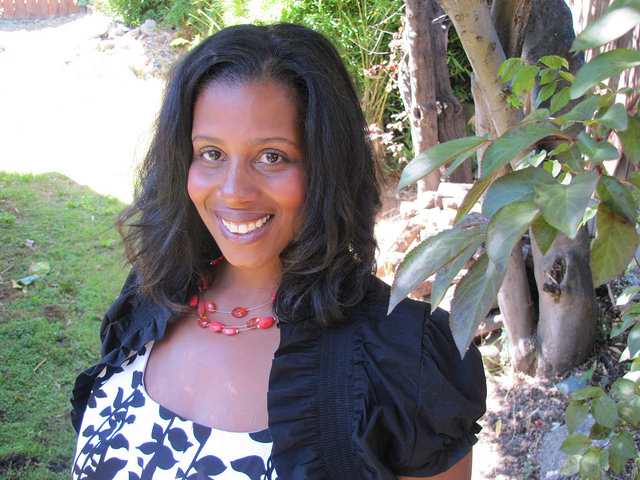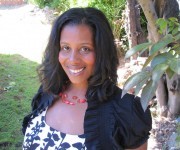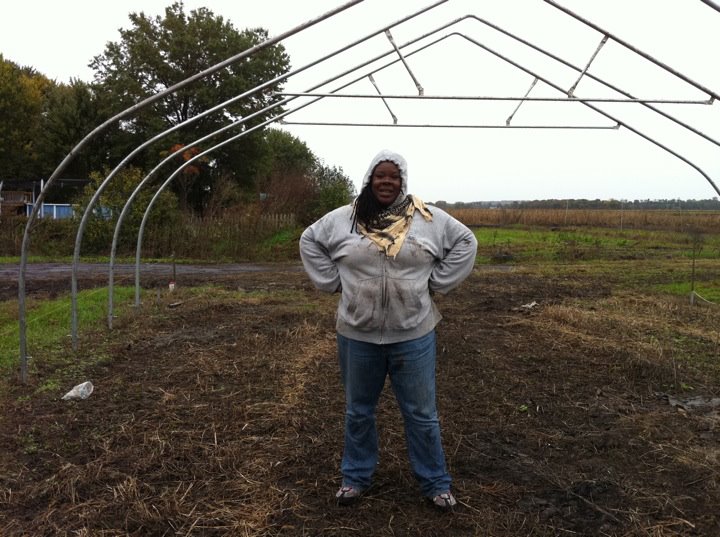 Grist is proud to present the Change Gang — profiles of people who are leading change on the ground toward a more sustainable society and a greener planet. Some we’ve written about before; some are new to our pages. Some you’ll have heard of; most you probably won’t. Know someone we should add to the Change Gang? Tell us why.
Grist is proud to present the Change Gang — profiles of people who are leading change on the ground toward a more sustainable society and a greener planet. Some we’ve written about before; some are new to our pages. Some you’ll have heard of; most you probably won’t. Know someone we should add to the Change Gang? Tell us why.
As an African-American kid growing up in Oakland, Calif., in the 1970s and ’80s, Rue Mapp stood out. Unlike most of her peers, her family left the city as often as possible to drive two hours north to their ranch in Lake County.
Mapp remembers raising livestock and vegetables and hunting and fishing with her father. “I was a part of the slaughtering process,” she recalls fondly.
But she was also an early-adopter geek. Her parents gave her a Commodore personal computer for her sixth grade graduation in 1982, placing her way ahead of the curve for most middle-schoolers in Oakland — or anywhere else — at that time.
Mapp never let go of her two passions. She has even managed to combine them into a career, in the form of her website, Outdoor Afro — “where black people and nature meet.”
Mapp’s goal is to use social media’s vast potential for sharing experiences and creating connections to break through stereotypes and self-perceptions that don’t see a natural intersection between African Americans and the great outdoors. What she originally envisioned as a “web platform for African Americans to reconnect with nature and to each other” has succeeded beyond her wildest hopes, helping, she says, to shift the whole “visual representation of who engages in nature.”
“I get so many ‘thank you’s just for having that representation. People writing me saying ‘I am moved, I’m just so happy to see images of me doing these things I’ve always loved to do.'”
The lessons she is learning about how to encourage what she calls “the arc of validation” are spreading beyond her virtual domain. As we chat on the phone, Mapp is in Washington, D.C., distilling what she’s discovered for a joint venture between the EPA and Cornell University that aims to “build environmental education capacity for urban communities.”
Mapp’s enthusiasm for both getting online and getting outdoors is contagious. An avid cyclist, she vividly remembers discovering a diverse local cycling club, the Oakland Yellowjackets, via the internet.
“I can’t tell you how excited I was when I went on my first ride with them and saw African American women my age riding sweet Italian bikes. I was like, ‘I found my people!’ And I would never have read about them in Cycling Magazine.”
She is dismissive of the notion that inner-city poverty throws roadblocks in the way of hitting the trails. “I work in the realm of preference versus poverty,” she says. “I have the assumption that people afford to do the things that they value. There are ways to do camping cheaply. There are ways to get a bike on Craigslist.”
But that doesn’t mean it’s always easy. Mapp’s parents have passed away, and she no longer has access to the ranch of her childhood. Living in an urban setting means that any serious engagement with the outdoors has to be “very intentional.”
What’s on her to-do list? I ask.
“I’m really looking forward to doing some boar hunting,” says Mapp, referring to the feral pigs causing currently causing ecological devastation in neighboring Sonoma County. Which is not something you hear every day, from either white or black residents of the San Francisco Bay Area.




